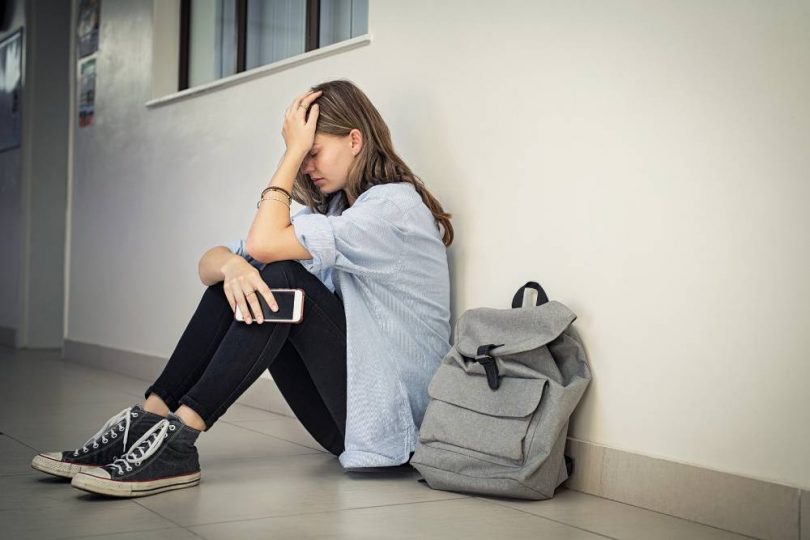Anxiety is the most prevalent psychiatric condition in the developed world, with estimates showing that between 30% to 40% of people will meet criteria for at least one anxiety disorder during their lifetime. [1] Truthfully, everyone experiences anxiety, but it also tends to affect adolescents and young adults at the highest rates [2], and to naturally decrease as we enter older age. Over the past 15 years, the American Psychological Association (APA) has conducted the “Stress in America” survey, and results show clearly that Millenials and Gen Z adults score higher than other generations on all measures of stress. [3]
There are a number of strong, established treatments for anxiety and stress. Psychotherapy is among the most effective treatments. Psychotherapy for anxiety can include a number of options, including cognitive-behavior therapy, supportive therapy, and more interpersonal or psychodynamic approaches. Some of the pros of therapy is that patients don’t have to worry about side effects and can learn skills that last a lifetime. Some of the negatives are that it takes time to work and can be far more expensive than medications.
Medications also exist for treating anxiety. The most often-used medications include antidepressants (which also work for anxiety) and some of the newer anti-anxiety medications like buspirone. Anxiolytics are a strong class of medicines for anxiety, and include drugs like Xanax and Valium. However, these should not be used often as they actually make anxiety worse with regular or long term use. All medications also come with several possible side effects, some of which can be severe.
CBD may be another option for managing anxiety and stress, especially if symptoms are not severe enough to warrant more established treatments. Although CBD has still not been well studied in large trials, anecdotal reports and some indirect studies suggest it can help. Neuroimaging studies have shown that CBD has similar, beneficial effects on brain functioning as other drugs used to treat mental health conditions. [4] Some preliminary studies have also suggested taking CBD just before doing something that would normally cause anxiety decreasing stress in social anxiety disorder. [6] More studies are needed to see if repeated dosing can help against anxiety, but so far studies are quite promising. Among possible side effects CBD can cause liver issues at high dosages. More studies ar needed to fully highlight the possible undesired effects of this valuable compound.
CBD can be a good alternative to other anxiety and stress treatments, and given just how much anxiety persists in our generation, it is important we consider new options for helping people.
References:
[1] American Psychiatric Association. Diagnostic and Statistical Manual of Mental Disorders: Fifth Edition. American Psychiatric Publishing; 2013. [2] Bandelow B. et al. Epidemiology of anxiety disorders in the 21st century. Dialogues Clin Neurosci. (2015); 17(3):327-35. doi: 10.31887/DCNS.2015.17.3/bbandelow. [journal impact factor = 5.22] [times cited = 1551][3] APA Stress in America survey. https://www.apa.org/news/press/releases/stress/interactive-graphics [4] Batalla A. et al. The impact of cannabidiol on human brain function: A systematic review. Frontiers in Pharmacology. 2021;11. doi: 10.3389/fphar.2020.618184 https://www.frontiersin.org/articles/10.3389/fphar.2020.618184 [journal impact factor = 5.51] [times cited = 7]
[5] Elsaid, S. et al. The complexity of pharmacology of cannabidiol (CBD) and its implications in the treatment of brain disorders. Neuropsychopharmacol. 45, 229–230 (2020). https://doi.org/10.1038/s41386-019-0518-1 [journal impact factor = 8.294] [times cited = 15]
[6] Blessing EM. et al. Cannabidiol as a Potential Treatment for Anxiety Disorders. Neurotherapeutics. (2015);12(4):825-36. doi: 10.1007/s13311-015-0387-1. [journal impact factor = 7.620] [times cited = 559]
Image: https://www.bigstockphoto.com/it/image-389647879/stock-photo-upset-and-depressed-girl-holding-smartphone-sitting-on-college-campus-floor-holding-head-university-sad-student-suffering-from-depression-sitting-on-floor-at-high-school-lonely-bullied-teen










